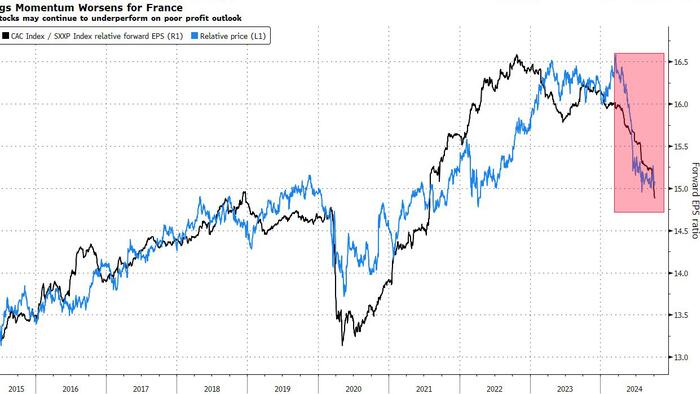In the wake of political turbulence and the fallout from June’s snap election, French investors are facing an additional concern: the possibility of higher corporate taxes. This political uncertainty has heavily impacted market performance, causing the CAC 40 index to lag behind other major European stock indices. Down nearly 1% for the year, it starkly contrasts with the substantial double-digit gains seen in countries like Germany and Spain. The political chaos has not only influenced investor sentiment but also led to a decline in luxury market stocks, which are typically a strong suit for French markets.
The aftermath of the elections has left many investors feeling nervous about future economic stability. With the new government installed, some had hoped for a period of recovery and growth in the French markets. However, the administration’s proposals to increase corporate taxes have added a layer of concern. Investors are wary that such tax hikes could stifle business investment, reduce consumer spending, and ultimately hinder economic growth. This potential shift in fiscal policy raises questions about the overall attractiveness of France as a place for investment compared to its European neighbors.
While France might have a functioning government again, the looming issue of higher taxes could overshadow any potential economic benefits that might arise from political stability. The financial landscape has already shifted considerably, with key luxury brands feeling the brunt of the impact. Critics of increased corporate taxation argue that it could lead to reduced profit margins for companies, prompting them to reevaluate their operations and investments in the country. The luxury sector, a hallmark of the French economy, may see a ripple effect from such changes, affecting both domestic and international consumer confidence.
The discrepancies between France’s market performance and that of other European countries highlight the challenges faced by French investors. Countries like Germany and Spain have successfully capitalized on economic recovery and growth following the pandemic, driven in part by favorable fiscal policies. Meanwhile, France’s indecisive political environment and the fear of tax increases could keep investors on the sidelines. The lack of momentum in the French market raises concerns about its long-term competitiveness and attractiveness for both local and foreign investments.
Furthermore, the uncertainty surrounding corporate tax adjustments may deter new investments in critical sectors. Investors often look for environments that foster growth and stability, and the fear of increasing tax burdens could discourage companies from expanding their operations in France. The ongoing political negotiations may create an unpredictable environment for businesses, potentially leading them to consider moving their operations to other European nations with more favorable tax regimes.
In conclusion, as French investors grapple with the implications of political instability and the threat of increased corporate taxes, the outlook for the country’s economic recovery remains precarious. The contrast with the performance of other major European indices only exacerbates concerns regarding future investment and growth in the French economy. Without a clear commitment to maintain a competitive tax environment, France risks losing its appeal to investors in a rapidly changing European marketplace. The need for strategic fiscal policies that balance revenue generation with economic growth is more crucial than ever for the sustainable development of France’s economy.

